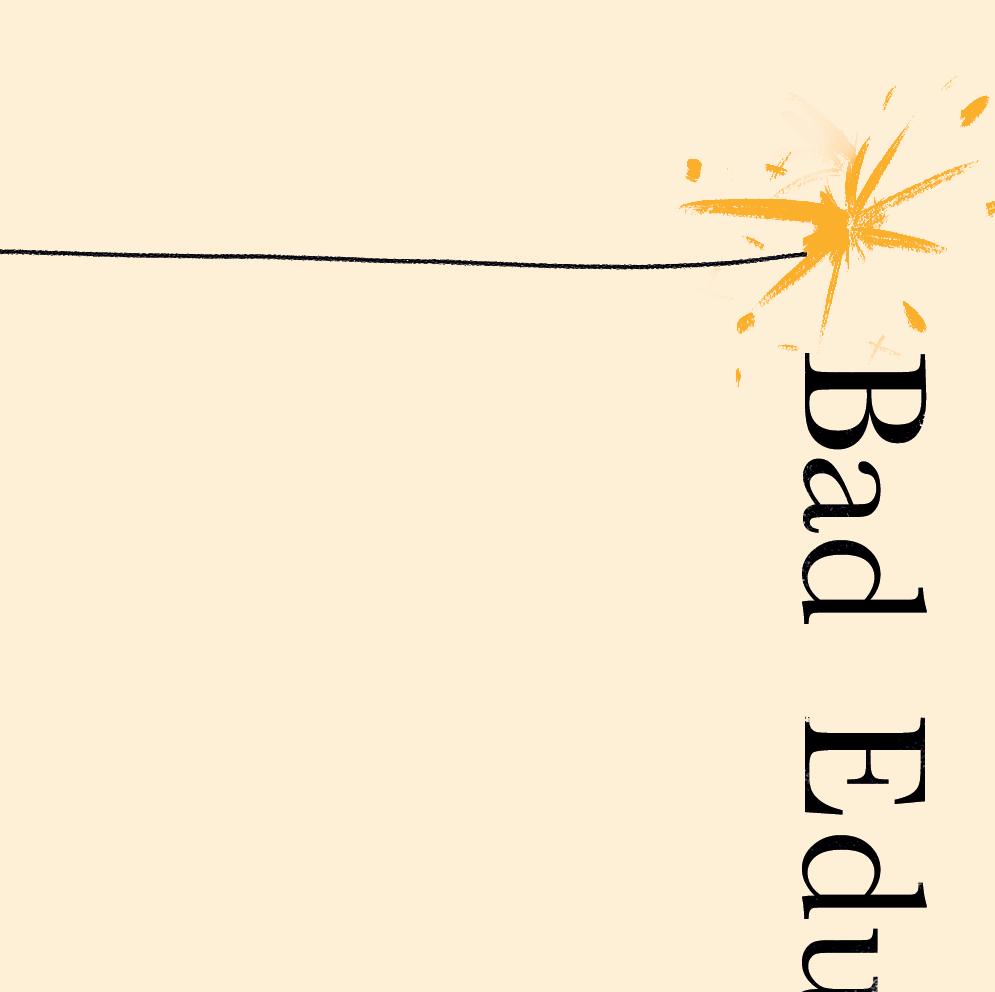
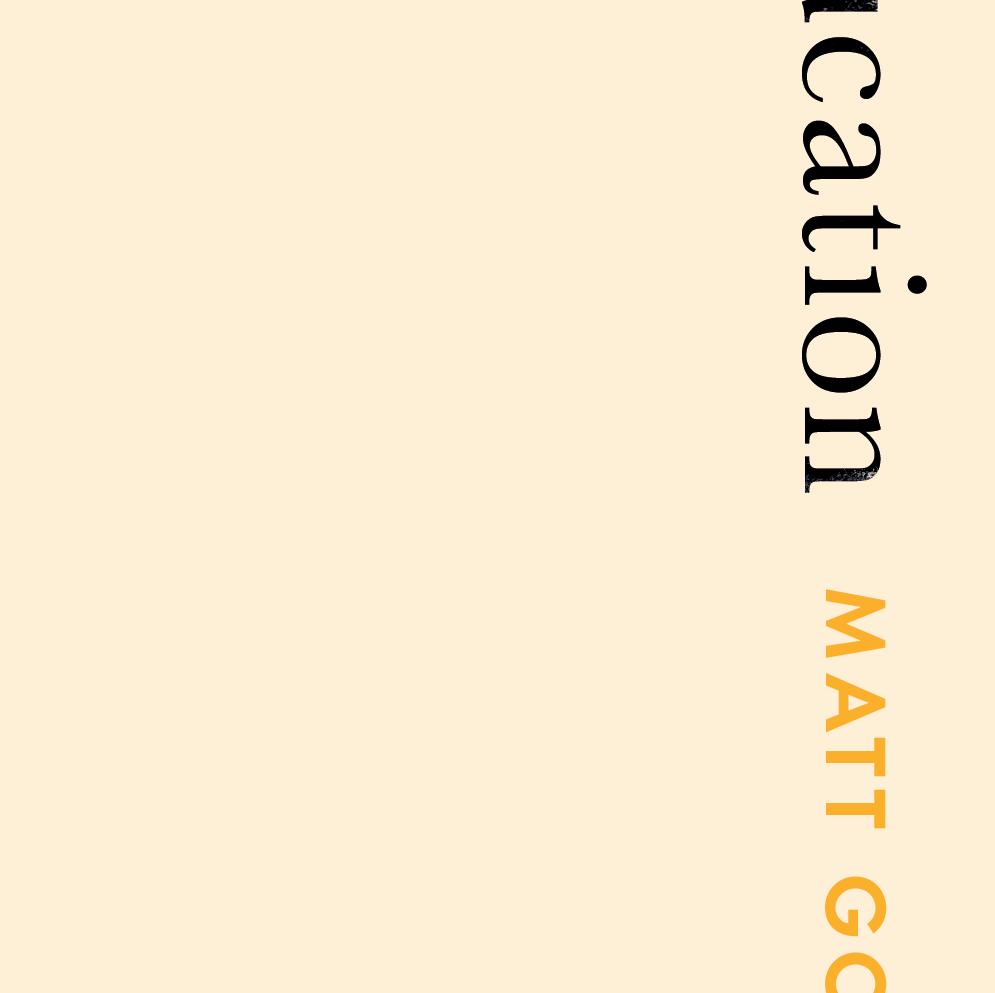

‘Buy this book.’ DOUGLAS MURRAY
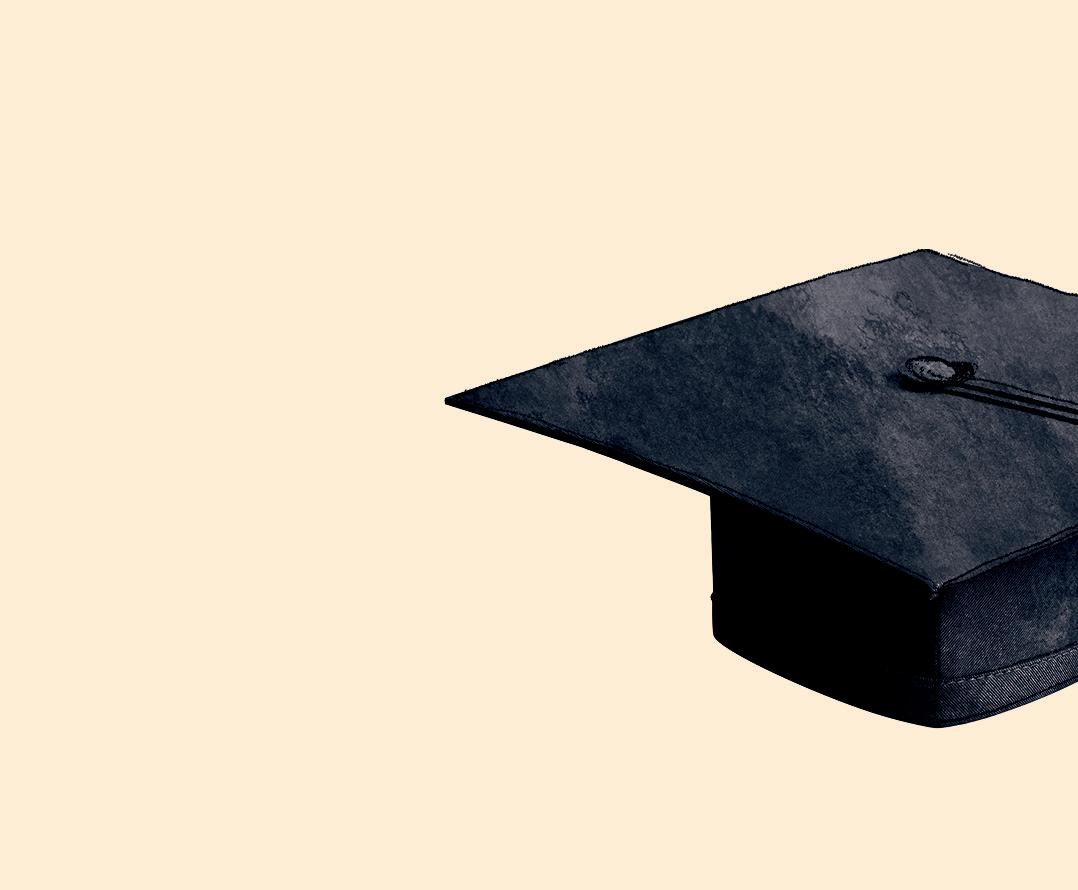
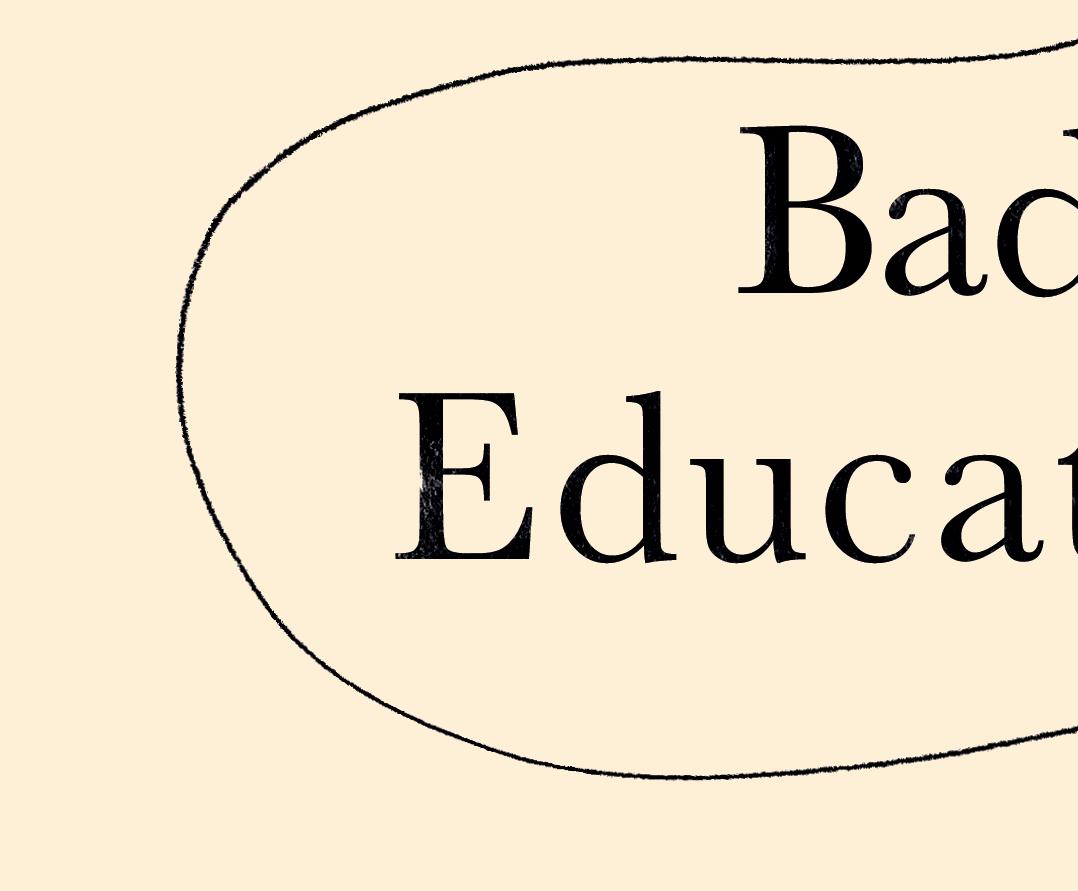
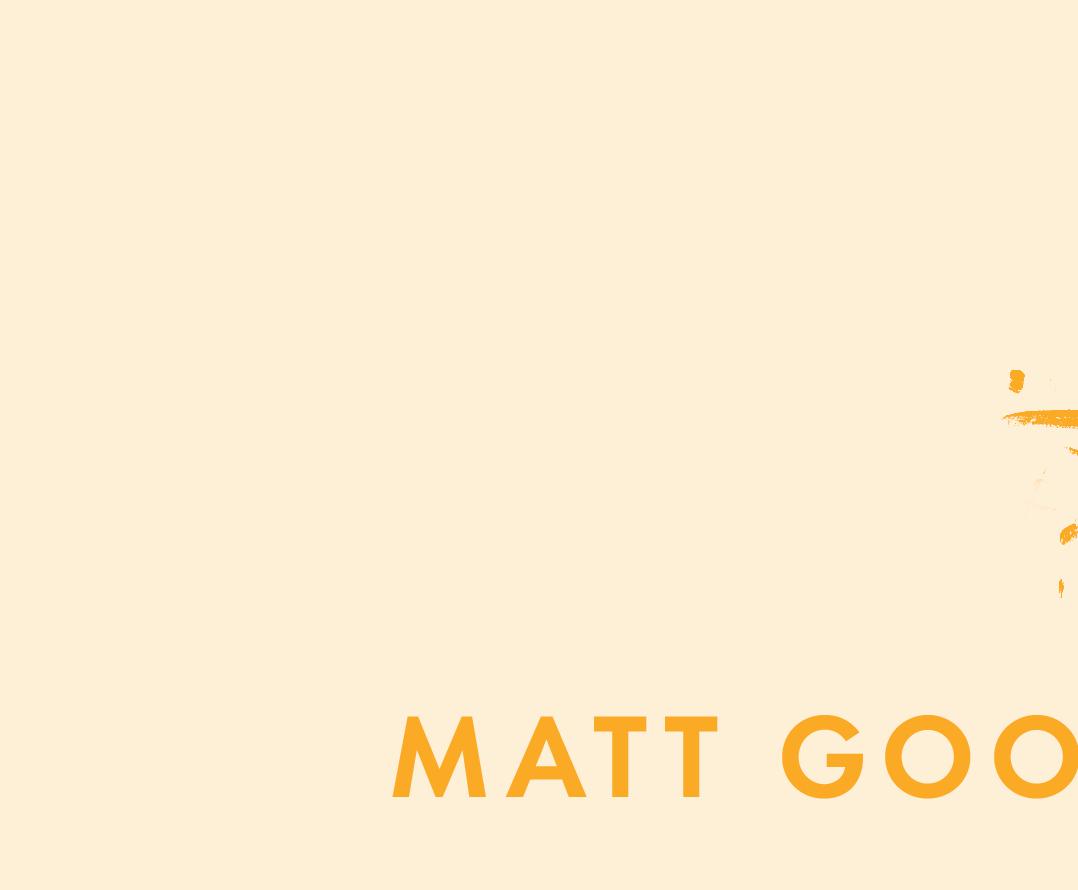
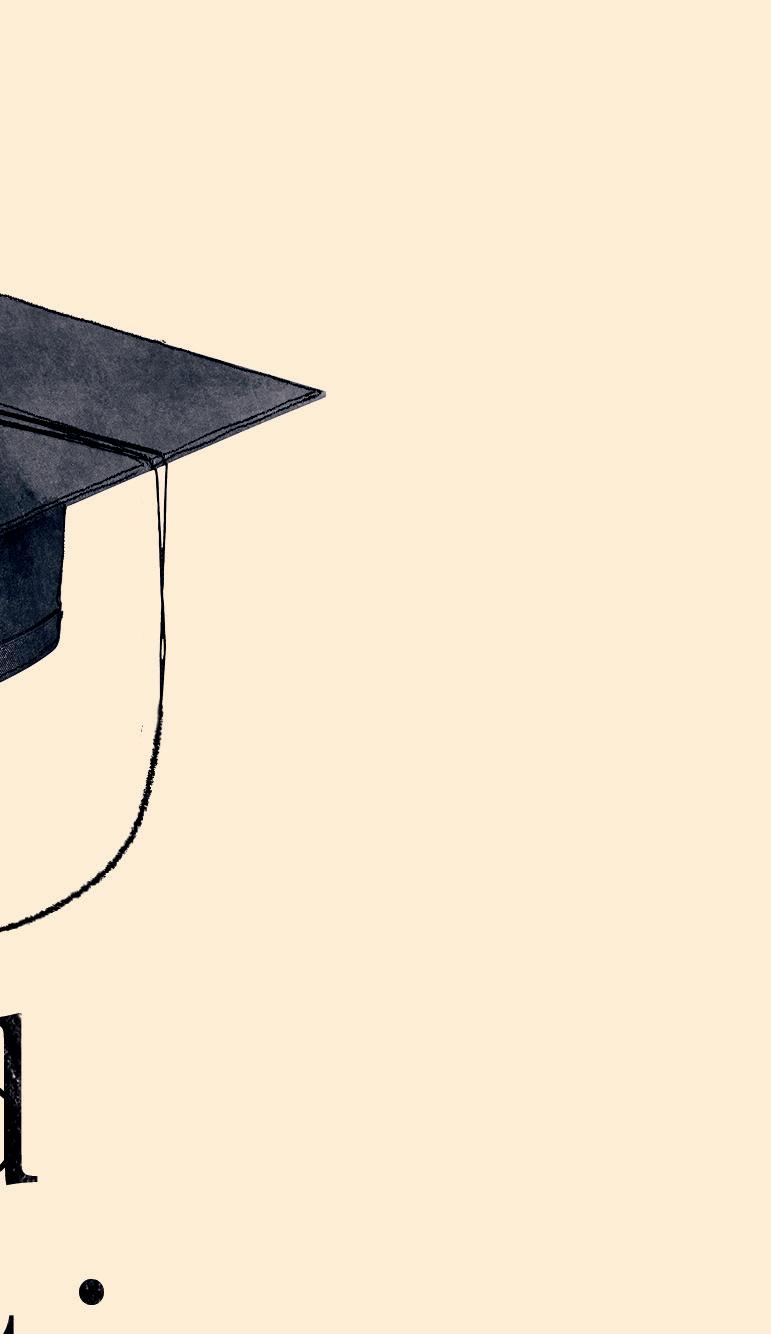
‘An
urgent call for reformation.’
DAVID GOODHART
Why our universities are broken and how we can fix them
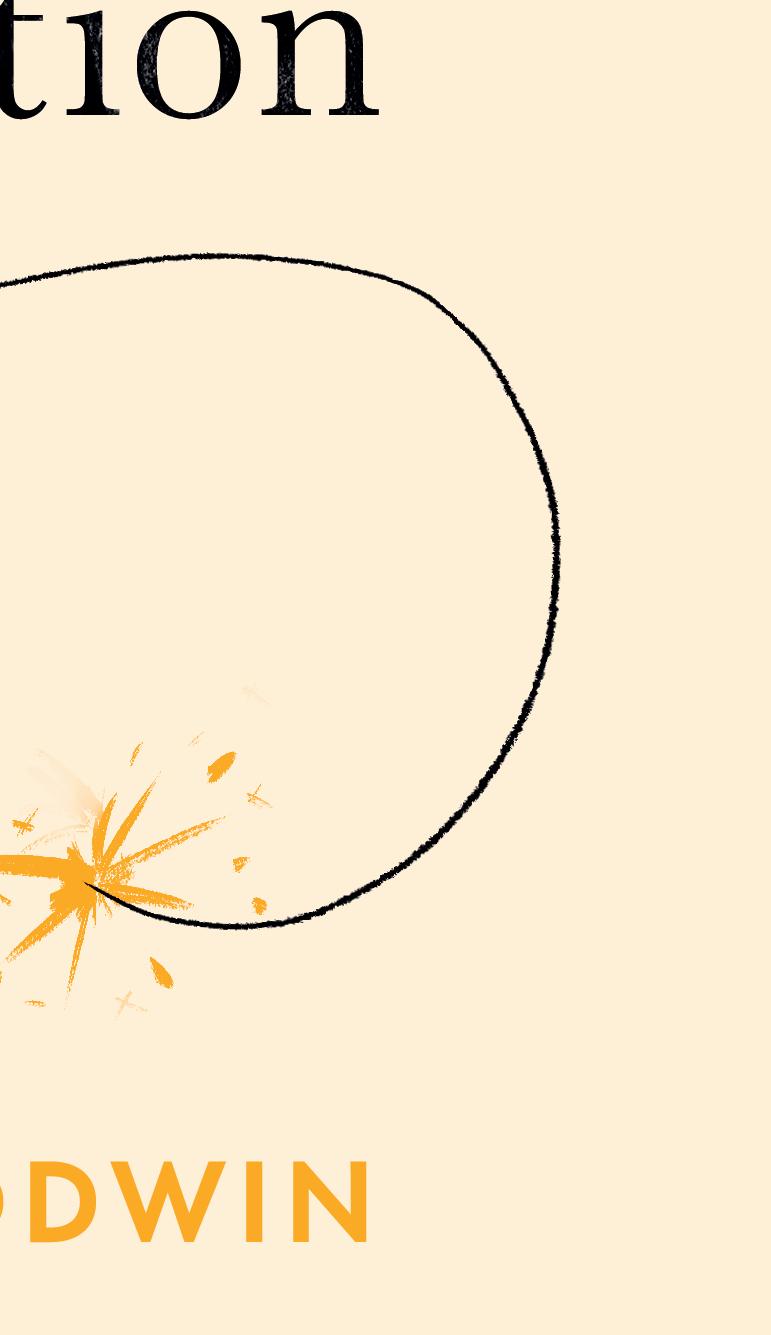




‘Buy this book.’ DOUGLAS MURRAY




‘An
urgent call for reformation.’
DAVID GOODHART
Why our universities are broken and how we can fix them

Also by Matt Goodwin
Values, Voice and Virtue
National Populism
Revolt on the Right
Penguin Random House, One Embassy Gardens, 8 Viaduct Gardens, London sw11 7bw www.penguin.co.uk
Transworld is part of the Penguin Random House group of companies whose addresses can be found at global.penguinrandomhouse.com
First published in Great Britain in 2025 by Bantam an imprint of Transworld Publishers
Copyright © Matthew Goodwin 2025
Matthew Goodwin has asserted his right under the Copyright, Designs and Patents Act 1988 to be identified as the author of this work. Every effort has been made to obtain the necessary permissions with reference to copyright material, both illustrative and quoted. We apologize for any omissions in this respect and will be pleased to make the appropriate acknowledgements in any future edition.
As of the time of initial publication, the URLs displayed in this book link or refer to existing websites on the internet. Transworld Publishers is not responsible for, and should not be deemed to endorse or recommend, any website other than its own or any content available on the internet (including without limitation at any website, blog page, information page) that is not created by Transworld Publishers.
A CIP catalogue record for this book is available from the British Library.
isbn
9781787635241
Text design by Couper Street Type Co. Typeset in 11.75/16pt Granjon LT Std by Jouve (UK), Milton Keynes. Printed and bound in Great Britain by Clays Ltd, Elcograf S.p.A.
The authorized representative in the EEA is Penguin Random House Ireland, Morrison Chambers, 32 Nassau Street, Dublin d02 yh68 .
Penguin Random House values and supports copyright. Copyright fuels creativity, encourages diverse voices, promotes freedom of expression and supports a vibrant culture. Thank you for purchasing an authorized edition of this book and for respecting intellectual property laws by not reproducing, scanning or distributing any part of it by any means without permission. You are supporting authors and enabling Penguin Random House to continue to publish books for everyone. No part of this book may be used or reproduced in any manner for the purpose of training artificial intelligence technologies or systems. In accordance with Article 4(3) of the DSM Directive 2019/790, Penguin Random House expressly reserves this work from the text and data mining exception.
Penguin Random House is committed to a sustainable future for our business, our readers and our planet. This book is made from Forest Stewardship Council® certified paper.
This book is dedicated to the many students I have taught in the past and the many more who will follow in the future, with the hope that our universities will better serve the next generation.
Somebody once said working in a university is one of the few places where you get older while everyone around you stays the same age.
I think about that every September, at the start of a new academic year, when another load of first-year students descend on to campus with hopes and dreams of receiving a world-class university education.
I used to be enthusiastic about their arrival. I used to welcome them with open arms. I used to tell them, excitedly, that they were about to embark on the intellectual adventure of their young lives. I used to wax lyrical about how they were setting out on a search for all the things universities are meant to protect and promote – knowledge, wisdom, evidence, reason and, above all, truth.
And much like the record numbers of students who are now heading off to university each year, many of them supported by the Bank of Mum and Dad, I used to believe that our universities would teach them the
importance of debating in good faith, respecting alternative viewpoints, and prioritizing evidence over dogma.
But that was a long time ago.
In more recent years, instead, I found myself experiencing very different feelings. As each cohort of first-year students came and went, I found myself becoming more disillusioned, more disgruntled, more dispirited, more depressed.
Why?
Because after devoting more than twenty years of my life to universities – to teaching students, carrying out research, and helping run these increasingly complex and sprawling institutions – I’ve become aware of something many other professors know to be true but will simply never say out loud.
Our universities are broken.
They are completely and utterly broken. They are no longer fit for purpose. They have lost sight of their original mission. And they are now setting up an entire generation of young people to fail, weakening our society and democracy along the way.
The crisis that is now engulfing universities across the West, as we will see in the pages to come, has been decades in the making. It is a crisis very few university insiders are willing to talk about openly, directly and honestly, and which my fellow professors will be furious with me for writing about so candidly.
You see, there’s a sort of secret code of silence among professors and academics on campus – what the Mafia call omertà. No matter how bad things get, no matter how glaringly obvious the crisis becomes, no matter how visibly these once great institutions are failing our young people, you just never, ever tell people on the outside.
Well, to hell with that. I’m going to tell you everything. I’m going to pull back the curtain, lift the lid, and show you why our universities are falling apart, and how this crisis is now trickling out of the universities to weaken our wider society – our politics, culture, institutions and ways of life. I’m going to explain exactly why we’re letting down not only the millions of students who are passing through these institutions each year but also their families who are having to fork out increasingly astronomical sums of money to bankroll this experience. And I’m going to show you how the crisis on campus is unfolding in three key areas: how it’s impacted the scholars who are supposed to be able to teach and conduct research with complete freedom; how it’s undermining students, who are supposed to be able to study, learn and express themselves freely without having to fear the consequences; and how the surrounding system of higher education, which is supposed to guide and support our universities, is being corrupted.
I’m also going to propose some solutions, give you a
roadmap for fighting back, a clear set of ideas for how we can tackle this crisis and return universities to what they used to be – world-leading institutions of higher education that were committed to the pursuit of truth and learning, and were not afraid to expose our young people to the full range of ideas and opinions that exist in wider society, even ones they find uncomfortable.
And I’m going to do this because I genuinely care about these institutions. I have been writing this book in secret for a long time precisely because I do want to help save the universities and because I believe that our children, the next generation of leaders, thinkers and creators, deserve so much better.
And the only way to do that, the only way to build something better, is to step back to make full sense of the crisis that is now sitting, like a ticking time bomb, at the very heart of these institutions.
So, this is why I decided to blow up my career as a professor. This book is a shot across the bows of the establishment and a threat to the established order of things. Put simply, after reading this, it is highly likely that the established universities will never hire me and my former academic colleagues will never speak to me again.
Perhaps then, reader, you would consider doing me one favour. I don’t expect you to agree with everything in the pages ahead, and I don’t expect you to agree with my own views and opinions. They are just
that, strongly held views and sometimes controversial opinions. But they are always based on facts, including studies and publicly reported cases, as the references in the Notes demonstrate. This is to enable you to decide for yourself. But what I do hope you will agree with me about is the need to crack open a much wider conversation about what is going wrong on campus and how we might fix it.
As we will see, while we claim to live in liberal, open societies, the blunt reality is that we are becoming less willing to tolerate different viewpoints and perspectives. That needs to change, especially in the very institutions that are supposed to be training and encouraging our young people to do exactly this.
Because if nothing else, those young people, our students, our leaders of tomorrow, will shape the future. They deserve a lot more than the broken status quo.
Matt Goodwin October 2024
In 2024, after more than twenty years teaching and working in the universities, I quit my job as a university professor.
Most of my friends, family and colleagues thought I had gone completely insane. My mother has still not forgiven me. She liked telling the neighbours her son was a professor. How could you leave one of the best jobs on the planet, they asked? A job that comes with a generous salary, an even more generous pension, loads of autonomy, and the opportunity to travel the world and shape the bright young minds of tomorrow?
It’s a good question. And to be honest it’s one I never thought I’d have to answer. When I first entered the universities, in the early 2000s, during the big expansion of higher education under Tony Blair and New Labour, I fell completely in love with university life. I was a true believer. I believed passionately in what I thought universities and higher education were all about. The search for truth. The pursuit of knowledge.
Rigorously testing new ideas and expanding our understanding of the world. Fostering open, inquisitive discussion and debate among our students. And defending things like free speech and free expression, the lifeblood of liberal democracy.
Universities weren’t always like this, of course. When they first emerged, nearly 1,000 years ago, in places like Bologna, Paris, Oxford, Cambridge and St Andrews in Scotland, many of them were openly religious institutions guided by people of faith, and strictly followed the rigid orthodoxy of the day.1 In their early days universities were organized around only a small number of true believers, sacred values that could never be questioned, and a culture that was deeply intolerant of any dissenters.
But, as historian Niall Ferguson points out, from the nineteenth century onwards universities gradually became more secular and professional. So much so that by the twentieth century there had emerged a general agreement that their main purpose was not to pursue religious dogma but, instead, truth, which would be discovered through means such as freedom of conscience, thought, speech and publication.2 This is why, even today, the world’s elite universities, such as Harvard and Yale, still have ‘veritas’, or ‘truth’, as their guiding motto.
There was also agreement about other things, too. There would be no discrimination when admitting
what happened to you?
students or selecting people for academic jobs, other than on the basis of intellectual merit. And aside from having ‘tenured’ jobs, which basically meant they could not be sacked, university academics and professors would also be protected by something called ‘academic freedom’ – the freedom to research, write and say whatever they liked without fear of consequence, such as being harassed or fired for their views.
This was crucial. Because without academic freedom, university professors would simply never be able to test new but unfashionable ideas, challenge a prevailing groupthink that might be popular but also misleading, and push knowledge forward.
This also helps to explain why, even today, universities are still often referred to as Ivory Towers, which in the Christian tradition is a symbol of noble purity. The Ivory Tower is a metaphorical place where scholars and students can cut themselves off from the outside world and feel free to pursue their interests without fearing consequences.
And it really worked. By championing truth and objective scientific knowledge, and debating in good faith, universities in the West helped produce one of the greatest civilizations the world has ever seen.
Even today, all but one of the top ten universities in the world and nearly three-quarters of the top hundred are based in the West. Without these institutions it is difficult if not impossible to imagine things such
as the post-war economic boom, the triumph of liberal democracy over fascism and communism, and countless scientific discoveries from the internet to vaccines taking place.3
And all this is pretty much what I thought I was joining when I decided, after finishing my undergraduate degree, to stay on campus and devote the rest of my life to becoming an academic.
I thought I was joining institutions that prioritized scientific knowledge, evidence and reason over religious and political dogma. I thought I was joining institutions that were genuinely committed to helping students become critical, well-rounded thinkers by exposing them to a wide range of ideas, even ones they profoundly disagreed with and might even find uncomfortable.
As John Stuart Mill argued in his book On Liberty , freedom of speech can only flourish if you have a genuine diversity of opinion, and this is what I thought I was joining – institutions that are diverse not just in terms of race, sex and gender but also in the range of views that exist on campus. I believed, in other words, in the university not so much as an institution but as an idea, in what British statesman Benjamin Disraeli once described as ‘places of light, of liberty, and of learning’.
I can even remember imagining at the start of my academic career that my life as a university professor
what happened to you?
would look something like Russell Crowe’s character in A Beautiful Mind – the mathematician John Nash, who spent his days advancing the frontiers of knowledge while wandering around leafy campuses with books under his arm and students hanging on his every word (though, to be fair, Nash later went completely insane). I can also remember thinking that, like those scholars in the past, I’d have complete freedom to write research papers, books and give talks on whatever topics I wanted, to say whatever was on my mind, without having to worry what others might think. And feeling excited about the fact that I would have responsibility for widening rather than narrowing the minds of our young people, the next generation, not least by exposing them to a wide and diverse range of ideas and opinions.
But, over time, as each year replaced the last, as each group of students came and went, as I passed through several universities and made my way through the different stages of an academic career, eventually rising to become one of the youngest professors in the country, I gradually arrived at a very different and a very depressing conclusion. This is not what I had joined at all.
Nearly twenty years to the day since I first graduated from university with an undergraduate degree – and after going on to complete a Master of Arts, a PhD, a postdoctoral fellowship, and then becoming lecturer,
senior lecturer and professor – I finally realized that I could no longer avoid what had been staring me in the face: our universities and the wider system of higher education are falling apart. It took me twenty years, in other words, to learn what I am about to tell you. Our universities are no longer interested in their original purpose. They are no longer prioritizing the search for truth, learning, and evidence over dogma. They are no longer protecting and promoting things like free speech and academic freedom. They are no longer opening and challenging the minds of their students. And they are no longer Ivory Towers. Instead, they have morphed into institutions that are delivering, fundamentally, a bad education.
Nor was my view of university life the only thing that shifted over those twenty years. More generally, as I made my way through my academic career, observing what was unfolding on campus, I also found my views about many other issues in society beginning to change – and in profound ways. This is relevant, as we shall see, because it opened my eyes to the true extent to which we are failing to prepare our students and young people for the real world, and why that matters.
When I first began my career as an academic I was, like the vast majority of people in the university class, a fully signed-up member of the liberal left. I used to read and write for the Guardian. I voted for the Labour
what happened to you?
Party. I worked at left-wing think-tanks. I advised left-wing politicians. I walked around campus wearing T-shirts with Che Guevara on them. I routinely changed my Facebook profile picture to signal my concern about whatever had just upset liberals, and shared their moral outrage over various injustices around the world. I made sure that my tweets included the latest fashionable hashtag. I viewed everything to the right of the centre-left as basically equivalent to ‘fascism’ and the ‘far right’. I routinely complained about conservatives and right-wingers, viewing them as inherently racist and problematic. I spent virtually all my time socializing with other left-leaning academics, which reinforced these views. And, especially when I was on campus, surrounded by other members of the university class, I thought all this was completely and utterly normal.
But today I find myself in a totally different place. Aside from quitting my job and professorship in the universities, many other things in my life have also changed. Today, most of my friends are on the right, not the left. Most of the writers I find interesting are on the right, not the left. Most of the ideas and arguments that I find compelling are on the right, not the left. And now, as much as possible, I go out of my way to avoid socializing with other academics and stepping anywhere near a university campus. Why?
Because all these things are connected; because what
I have watched unfold on campus over the last twenty years also profoundly influenced my views about the direction of the so-called ‘liberal’ left in Western politics, a movement that much like our universities has increasingly become disconnected from its roots and no longer looks recognizable.
‘What happened to you, Matt?’ my friends, family and former colleagues are still asking me after my decision to walk away from my professorship. ‘When and why did you change your views? Why did you abandon the left? What happened?’
Well, as American writer Andrew Sullivan once remarked when he was asked the same question by his old friends on the left,4 you’re asking the wrong question. The question that really needs to be asked if you want to make sense of why I quit my job and completely changed my outlook on life is not ‘What happened to me?’ No. The question we should be asking the people managing universities, and those who are running the academic departments, teaching students and shaping the minds of our young people, is this: What the hell happened to you?
Again, if your natural inclination is to disagree with me on a political level then I urge you to keep reading. Not so that I can change your mind, necessarily, although that would be nice. But so we can at least try and have a serious discussion about the state of
what happened to you?
our universities and how we might better nurture the bright young minds of today and tomorrow.
There was no single moment when the penny dropped, when I suddenly decided to quit my job. Instead, there was a steady accumulation of shocking moments, events and revelations that simply made it impossible for me to ignore the uncomfortable fact that universities are no longer fit for purpose.
And clearly I’m not the only person who’s realized that something is going terribly wrong on campus. In recent years, as I lost faith in higher education, public confidence and trust in these once great and highly respected institutions also collapsed to record lows.
In America, in 2024, the polling company Gallup found that since 2015 the share of Americans who have a ‘great deal of confidence’ in universities has fallen off a cliff, tumbling from 57% to just 36%. And this decline, for reasons that we’ll explore, is especially sharp among Republicans, with the share saying they have ‘little or no confidence at all’ in universities rocketing from 11% to 50% today.5
Around the same time (2023), the Wall Street Journal found that a majority of Americans now think negatively about university degrees, with this scepticism strongest among the very people who have degrees, suggesting the crisis on campus is only going to get worse.6
In Britain, too, while members of the elite class who graduated from Oxford, Cambridge or one of the other prestigious ‘Russell Group’ universities routinely use their powerful positions in politics, culture and media to extol the wonders of university education, many other people in the country are clearly having second thoughts. In 2024, remarkably, the polling company YouGov found that most British people now openly reject the suggestion that universities offer ‘value for money’. In fact, more than half of all British people, some 52% of them, now say the ‘standard of education and the wages graduates earn are not enough to warrant the cost’, while more than one in three (38%) think we are ‘sending too many people to university’. 7
Many people in the university class downplay or ignore these findings because they do not fit their narrative that higher education, because of ongoing student demand, is as strong and valuable as ever. But in the polls and surveys it’s clear that many people no longer share this view. Like me, they’re questioning universities like never before.
On campus, meanwhile, I’m not the only rogue professor who thinks that something has gone terribly wrong. While they might not commit career suicide like me by saying it out loud, I know for a fact that many of my fellow professors would tell you they share my view that universities and the higher education